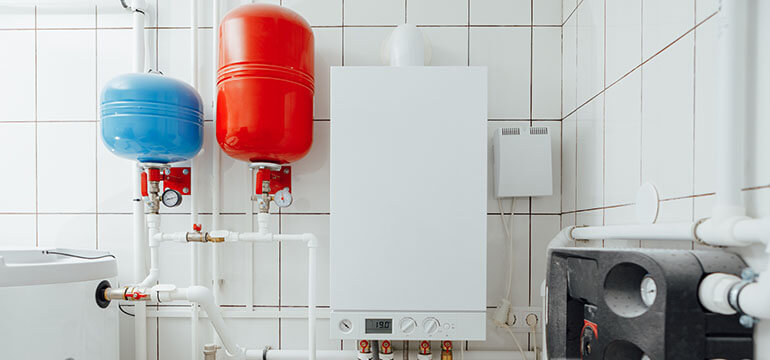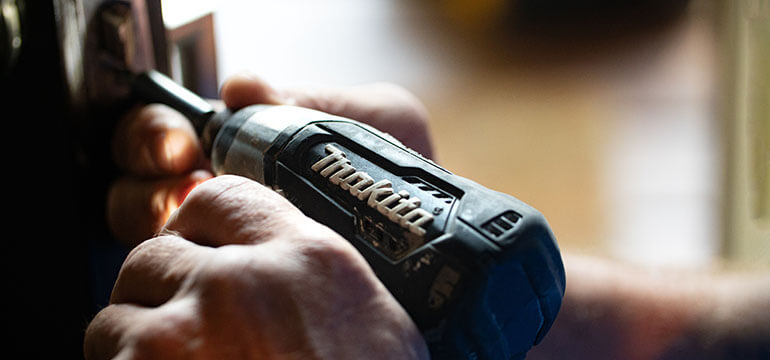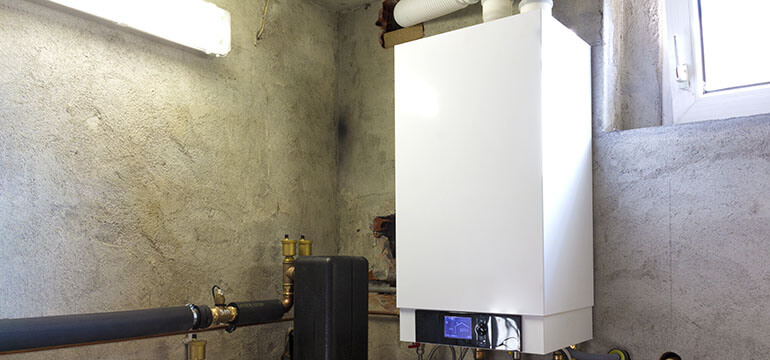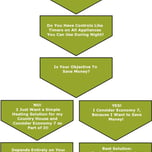Answer these simple questions and we will find you the BEST prices
Which type of solar quotes do you need?
It only takes 30 seconds
100% free with no obligation

Get up to 3 quotes by filling in only 1 quick form

Slash your energy bills by installing an energy efficient boiler

We’ve helped over 500,000 homeowners reduce their carbon footprint
- GreenMatch
- Boilers
- gas
- Gas Boiler Prices
Gas Boiler Prices

What Are the Cheapest Gas Boiler Prices in the UK?
Gas boiler prices vary greatly, between £480 and £1,962, depending on the different types, brands, and quality. In fact, new boiler costs vary from year to year due to price inflation.
For this reason, homeowners need to consider the most recent gas boiler prices. Despite combi boilers becoming more popular in 2019, especially electric combi boilers, the best boiler depends on your household’s design and economic situation.
The difference between the various types of boilers (conventional, combi, system) and whether they are condensing or non-condensing must be taken into account. You also need to consider boiler maintenance, insurance costs, and the gas boiler installation.
As there are lots of factors that can affect gas boiler prices, you as a potential buyer need to be aware of a number of things before making the purchase. To help you with gas boiler prices and aid you in your purchase decision, fill in the form above and get up to 4 no-obligation quotes free of charge.
- Quotes from local engineers
- Payment by finance available
- Save up to £975
It only takes 30 seconds




Conventional Gas Boiler Prices
Conventional gas boilers are quite common in older households. They require two types of containers: one for the cold water storage that is then heated up by the boiler, and one for storing the hot water for immediate use.
One of the greatest advantages of this type of boiler is the ability to provide warm water to multiple taps at the same time. As such, it is also a perfect addition to larger households.
There are also disadvantages associated with a conventional boiler that you need to be aware of. Because a conventional boiler requires both a cylinder and two water tanks, the gas boiler prices will increase depending on the required size of these containers.
Factors such as the amount of energy output (measured in kWh), brand choice, the size of your home, and the gas boiler installation will also affect the prices.
| Construction Period | Pre 1900 House | 1930s House | 1950s House | 2000s House | ||||
|---|---|---|---|---|---|---|---|---|
| Household Size | Output | Price | Output | Price | Output | Price | Output | Price |
| Small | 15-18kW | £505-£894 | 13-16kW | £653-£855 | 12-15kW | £480-£822 | 12-13kW | £480-816 |
| Medium | 21kW | £913 | 20kW | £492 | 18kW | £894 | 15kW | £505 |
| Large | 24-41kW | £593-£1,589 | 22-35kW | £822-£1,535 | 20-30kW | £492-£1,141 | 16-21kW | £677-£913 |
Gas Combi Boiler Prices
Combi boilers are becoming more and more popular in the UK. Instead of having several tanks and cylinders for storing cold and hot water, it works by heating water directly from the pipes and a thermostat to keep track of the temperature, varying the temperature of the water as needed.
A major advantage over conventional boilers is that it is a lot more compact and, therefore, better suited for smaller households. Combi boilers are not only capable of providing hot water, but also provide room heating.
The installation requirements, household size, and the amount of hot water that you use will affect the gas boiler prices.
| Construction Period | Pre 1900 House | 1930s House | 1950s House | 2000s House | ||||
|---|---|---|---|---|---|---|---|---|
| Household Size | Output | Price | Output | Price | Output | Price | Output | Price |
| Small | 20-24kW | £629-£1,285 | 20-24kW | £629-£1,285 | 20kW | £618-£920 | 18-20kW | £700-£920 |
| Medium | 28-30kW | £632-£1,662 | 28-30kW | £632-£1,662 | 26-30kW | £606-£1,662 | 24-30kW | £605-£1,662 |
| Large | 30-40kW | £668-£1,225 | 30-40kW | £668-£1,225 | 30-35kW | £668-£1,620 | 28-32kW | £632-£1,390 |
System Gas Boiler Prices
System boilers are similar to both combi and conventional boilers in the sense that like a conventional boiler it stores the heated water in a cylinder but lacks the cold water tank and uses cold water from the mains just like a combi boiler.
The key advantage of system boilers is that it allows multiple uses of hot water at the same time, while requiring less space than conventional central heating.
Choosing a system boiler will most likely be cheaper than a conventional boiler, as you will not need to install additional water tanks in the loft, saving you money on additional installations.
| Construction Period | Pre 1900 House | 1930s House | 1950s House | 2000s House | ||||
|---|---|---|---|---|---|---|---|---|
| Household Size | Output | Price | Output | Price | Output | Price | Output | Price |
| Small | 15-18kW | £731-£1,015 | 15-18kW | £731-£1,015 | 12-15kW | £712-£944 | 12kW | £712-£812 |
| Medium | 20kW | £962 | 20kW | £962 | 18kW | £566-£1,015 | 15kW | £713-£944 |
| Large | 24-37kW | £589-£1,321 | 24-35kW | £589-£1,571 | 20-30kW | £962-£1,519 | 18-20kW | £566-£1,962 |
Maintenance Costs of Gas Boilers
Gas Boiler Insurance
A gas boiler insurance is a policy that can cover the costs of calling out a gas safe registered plumber to assess the damage and repair the boiler. There are a variety of companies which provide boiler covers, such as EDF Energy, HomeServe, and British Gas.
Prices will range depending on how much the insurance covers. Whether it is only the boiler or the plumbing and drainage repairs too, central heating issues, and so on.
While some insurance prices can be as little as £7.92 to £32 a month, an excess amount typically ranging from £60 to £95 must be paid as a one-time fee with the first payment.
Furthermore, most companies who sell boilers will have a warranty included, as well as an insurance policy that follows with the purchase.
How Much Does It Cost to Replace a Gas Boiler?
Buying a completely new boiler with installation can cost as much as up £3,000–£5,000, so the more sensible option might be to replace the broken parts, as long as that is feasible and economically viable.
Because brands such as Worcester Bosh, Valliant, and Ideal do not sell spare parts, you will need to seek professional help. Prices will vary depending on the provider, however; the average cost of getting your boiler fixed would be around £182.
Boilers quality has been improving over the years, which is also shown in the increased durability of the products being sold by various brands. According to Energy.gov, if your boiler is more than 15 years old, then it might be time to consider getting the boiler replaced.
The best way to limit the final total prices for a new boiler replacement is to shop around for quotes from the best local installers. This can take several hours, or days, of internet research, reaching out to installers, and waiting for a response. To speed up this process, use GreenMatch's free and exclusive quotes service.
Simply fill out our form and within 48 hours, you'll hear back from up to 4 qualified installers, all them based in your area. With their quotes, you can compare and choose the best deal. Sourcing the best local quotes has never been easier. Start today by clicking the button below.
- Quotes from local engineers
- Payment by finance available
- Save up to £975
It only takes 30 seconds




How Long Do Gas Boilers Last?
A traditional gas boiler will typically last 10-15 years. A higher-quality boiler that is properly maintained can last up to 20 years. In the end, it is a 'you get what you pay for' situation. The more money you spend on a premium model and annual maintenance, the more likely you get a worry-free experience.
There are multiple factors to consider when it comes to the life expectancy of a gas boiler: the quality level, regular maintenance, type of boiler, and usage rate can all affect the amount of time a boiler will last.
Gas boilers will typically outlast even the best electric boilers by a few years, while non-condensing boilers typically outlast condensing boilers.
Which Is the Best Gas Boiler to Buy?
Out of the different options available such as oil, electricity, propane, etc., mains gas is a much more cost-effective option for those who are looking for a new heating solution. Gas is also a much more dependable source of fuel, as opposed to oil or electricity, for example. Oil may be hampered by market fluctuations and shortages, while electric systems can be affected by power outages.
While biomass may be more environmentally friendly, out of all the fossil fuels, natural gas burns much more cleanly and produces a much smaller amount of pollutants than coal and oil.
GreenMatch has compiled a list of reliable boilers from various brands and boiler types, based on various factors such as efficiency and user reviews. Not only is it important to choose a boiler from a brand with a good reputation, but you also have to be aware of what type of boiler might be the most suitable for your needs, so you can enjoy a long-lasting investment.
| Brand | Model | Price |
|---|---|---|
| Worcester Bosch | Greenstar Highflow 440CDi Combi Gas Boiler | £2,081 |
| Greenstar 12i System Boiler | £850 | |
| Ideal | Logic Combi 24kW Gas Boiler | £775 |
| Logic Combi 24kW Gas Boiler | £775 | |
| ATAG | IR32 32kW Regular Gas Boiler | £1,971 |
| IC Economiser Plus 35kW Combi Gas Boiler | £2,380 | |
| Glow-Worm | Energy Combi 25kW Gas Boiler | £775 |
| Easicom 25r Regular Gas Boiler | £685 | |
| Ferroli | MaXima 35 S Combi Gas Boiler | £753 |
| ptimax HE PLUS 18 s System Gas Boiler | £539 | |
| Viessmann | vitodens 050-W combination boiler | £860 |
| Vitodens 100-W B1HC 19kW System boiler | £995 | |
| Biasi | Inovia System ErP 25kW Gas Boiler | £615 |
| Advance Plus Combi ErP 25kW Gas Boiler | £595 | |
| Baxi | Solo 15 HE A Regular Gas Boiler | £878 |
| EcoBlue System 32 Gas Boiler | £1,127 | |
| Intergas | Compact HRE SB 40 System Gas Boiler | £1,135 |
| Compact HRE OV 24 Regular Gas Boiler | £835 | |
| Potterton | Promax System HE Plus A 32kW Gas Boiler | £1,050 |
| Promax Ultra 24kW Combi Gas Boiler | £1,100 |
Are Gas Boilers the Best Option for My Home?
If you are on the lookout for a new boiler, you might be better off with a gas boiler than electric or biomass boilers, as those may be more expensive to purchase and run. But in the end, it all comes down to your personal preferences.
There are a lot of different types of fuel sources that you may use for your boilers, and some might please you more if you are conscious about the environment. However, both the purchase price and the running costs need to be considered when buying a boiler. For example, some might debate between a gas boiler vs a heat pump, but a gas boiler is incredibly cost and energy efficient.
Natural gas is one of the safest and cleanest fuels available. When burned, it emits less pollution than other fossil fuels, as well as produces mostly carbon dioxide and water vapour, the same substance emitted when humans exhale.
While gas boilers are very efficient and safe, one argument against them is that the UK is planning to phase them out. The gas boiler ban is part of the government's plan to reach the ambitious goal of being net zero by 2050.
It is not clear yet when the plan the will come into force. It was originally planned to be implemented by 2025, but recent talks have suggested that it might be postponed all the way to 2040. It is a good idea to keep an eye out for updates on the ban, if you are considering a new gas boiler.

Should I Replace My Boiler with an Air Source Heat Pump
While the advantages of air source heat pumps (ASHP) are numerous, replacing your gas boiler with ASHPs is not profitable in many cases. ASHPs do have lower running costs, reduced carbon emissions, and increased safety over conventional heating methods, but there are two main issues with ASHP compared to a boiler. Read more about air source heat pumps in the UK in our guide.
High Costs
One major issue with an ASHP system is the upfront purchase and installation costs. A complete installation of an air-to-water heat pump may cost £7,000–£11,000, a figure much higher than regular gas boiler prices. Additional costs would be added to that price, as the household size is another factor that may increase installation price even further.
While an ASHP system may be cheaper in the long run, in some cases it will not be able to cover its own installation costs because of its higher initial prices before the end of life of the product. This, of course, depends on your household setup.
Re-Installation Issues
Those who would like to swap their central heating system with an ASHP might face challenges with re-arranging the pipeline. What is more, 83% of households in the UK are mains gas connected, meaning chances are, switching to a heat pump based system from mains gas boilers might not provide you with as much return on your investment as you hope for.

Gas Safe Registered Installers
While it may be an effective source of fuel, there are risks associated with using mains gas. Leakage can cause serious damage. Therefore, every household needs to have an authorised installer who is registered under the Gas Safe Register.
The main purpose of the Gas Safe Register is to certify skilled gas installers who provide services on gas appliances according to the ruling law. This is the only official organisation that registers gas installers in the UK.
How Can the ECO3 Scheme Help Lower-Income Families
According to the Office of Gas and Electricity Markets (OFGEM), energy efficiency is a key part of government policy for reducing the UK’s greenhouse gas emissions. The energy company obligation (ECO), first introduced in 2013, is an energy efficiency scheme for Great Britain meant to assist in reducing carbon emissions.
A new obligation came into effect in 2018 (ECO3). The new scheme mainly focuses on low-income and vulnerable households, providing them with a gas boiler grant and helping to meet the government’s fuel poverty commitments.
While gas may be the cheaper option out of the different fuel types, some lower-income families may still not be able to afford the installation and/or running costs.
The government offers a £150 discount on the electricity bill under the Warm Home Discount Scheme. While the discount is meant for the electricity bill, you may be able to get it as a gas boiler grant if your supplier provides both gas and electricity.
Find UK Suppliers and Compare the Best Gas Boiler Prices
There is a big variety of gas boiler prices due to the installation, household size, government schemes, maintenance, insurance policies, and the like. Each company offers various entry-level to premium models. As a result, it is important to research what might be the best possible boiler option for your household.
If you are interested in gas boiler prices, installation, and which gas boiler is the best for you, then fill in the form above and we will provide you with up to 4 quotes. Our service is free of charge, with no obligations.
- Quotes from local engineers
- Payment by finance available
- Save up to £975
It only takes 30 seconds




Attila was the Front-End Developer at GreenMatch. He holds a degree in international marketing and has several years of experience in web development and user experience. Attila likes to write about solar energy, heating technology, environmental protection, and sustainability. His and his team’s articles appeared in well-known sites such as The Conversation, Earth911, EcoWatch, and Gizmodo.
We strive to connect our customers with the right product and supplier. Would you like to be part of GreenMatch?

- What Are the Cheapest Gas Boiler Prices in the UK?
- Conventional Gas Boiler Prices
- Gas Combi Boiler Price
- System Gas Boiler Prices
- Maintenance Costs of Gas Boilers
- Which Is the Best Gas Boiler to Buy?
- How Can the ECO3 Scheme Help Lower-Income Families?
- Find UK Suppliers and Compare the Best Gas Boiler Prices



